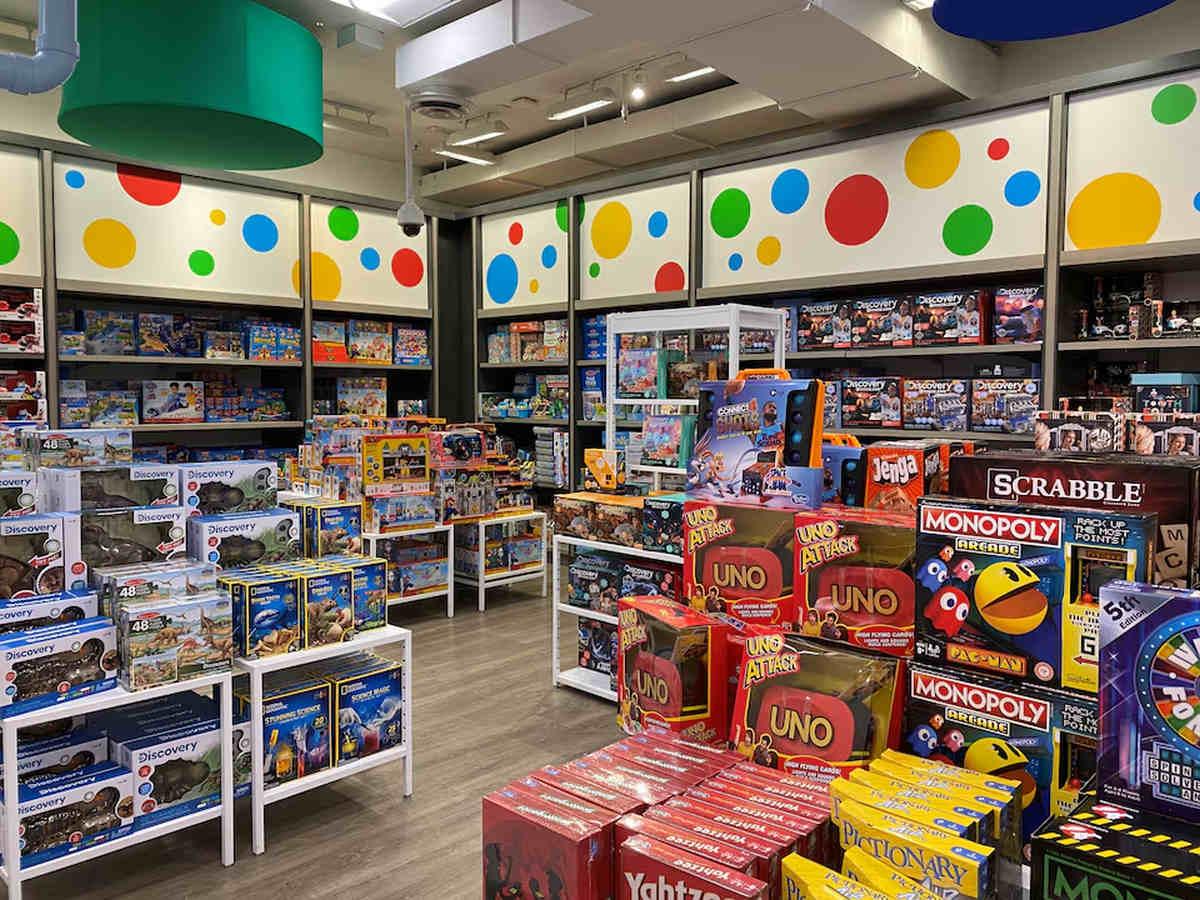For kids in the United States, the tariff imposed by the Donald Trump administration on countries like China may no longer be a child’s play, as toy prices are predicted to touch record highs this Christmas season.

Photograph: Vanessa O’Connell/Reuters
However, for India’s toy export industry, which was ready to take giant strides in the sector by bagging heavy orders from the US retail giants like Walmart, Amazon, and Target Corporation, gaining from the China-Plus-One policy, the US tariffs came as a heavy jolt.
The higher US tariffs seem to affect a larger share of India’s toy exports of around Rs 6,000 crore.
According to the Indian Toy Association, a majority of these US retail companies have put their orders on hold due to uncertainty in the tariff situation, causing concern for the Indian manufacturers.
“Last year, over 40 per cent of India’s toy exports were shipped to the US, making it a key market for Indian manufacturers.
“Any increase in tariff rates will directly affect competitiveness and could dampen the momentum Indian exporters have built in recent years,” said K A Shabir, chief executive officer of Funskool India, owned by tyre maker MRF and Associates.
Though Funskool has not seen outright order cancellations, he said there had been a clear slowdown in the flow of new orders as buyers are taking a ‘cautious approach’.
However, some US toy companies have asked it to expedite shipments of existing open orders before the August 27 deadline to avoid the additional duty.
Global majors like Hasbro, Mattel, Spin Master, and Early Learning Centre were already engaged in contract manufacturing in India, but it was for the first time this year that the likes of Walmart and Target Corporation were looking to source Indian toy brands.
Interestingly, Italian companies like Dream Plast, Micro Plast, and Incas International are also looking at India for contract manufacturing.
“Most of the toy companies are stuck with their stock right away, as buyers are not buying anything.
“There is also uncertainty on how much duty will be imposed.
“Major buyers from India now are Amazon, Walmart, and Target,” said Ajay Aggarwal, president of the Toy Association of India (TAI).
According to TAI estimates, there are around 20 exporters from India to the US market, including Funskool, Fun Zoo Toys, and Sunlord, among others.
Major toy exports from India include soft dolls, sports toys, building and development toys, educational toys (including board games and puzzles), musical toys, and electronic items. According to a report by IMARC, the Indian toy industry, which was valued at $1.7 billion in 2023, is expected to grow at 10.6 per cent to reach $4.4 billion by 2032.
“The earlier enthusiasm among buyers has waned, with several re-evaluating their sourcing strategies in light of the tariff implications.
Countries like Vietnam and the emerging toy manufacturing hub of Indonesia currently enjoy a cost advantage due to their relatively lower tariff structures compared to India,” Shabir said.
He added that some customers are holding the procurement of long lead-time items.
This uncertainty is also expected to affect India’s long-term growth targets too.
“It certainly has the potential to impact long-term growth.
“At Funskool, we’ve seen significant export-led growth in recent years and have made substantial investments in expanding our manufacturing capacities.
“With the current uncertainty, there is now a real risk of underutilising those capacities.
“If the tariff situation continues, it could dampen the momentum Indian manufacturers have built in the global toy export space,” Shabir added.
“We can explore alternate markets like Europe, New Zealand, Australia, and West Asia, among others,” Aggarwal said.
China at present contributes a larger share of the US toy market to the tune of around 80 per cent.
Several US toy companies have already warned the government that they will be forced to increase the prices to a record high this Christmas season.
On the other hand, this comes at a time when the India government was taking steps to boost the industry through the Make in India campaign and the National Action Plan for Toys.
The Ministry of Micro, Small & Medium Enterprises has lined up 19 toy clusters across the country for developing the sector: these include nine in Madhya Pradesh, three in Rajasthan, two in Uttar Pradesh, two in Karnataka, and one each in Andhra Pradesh, Maharashtra, and Tamil Nadu.




